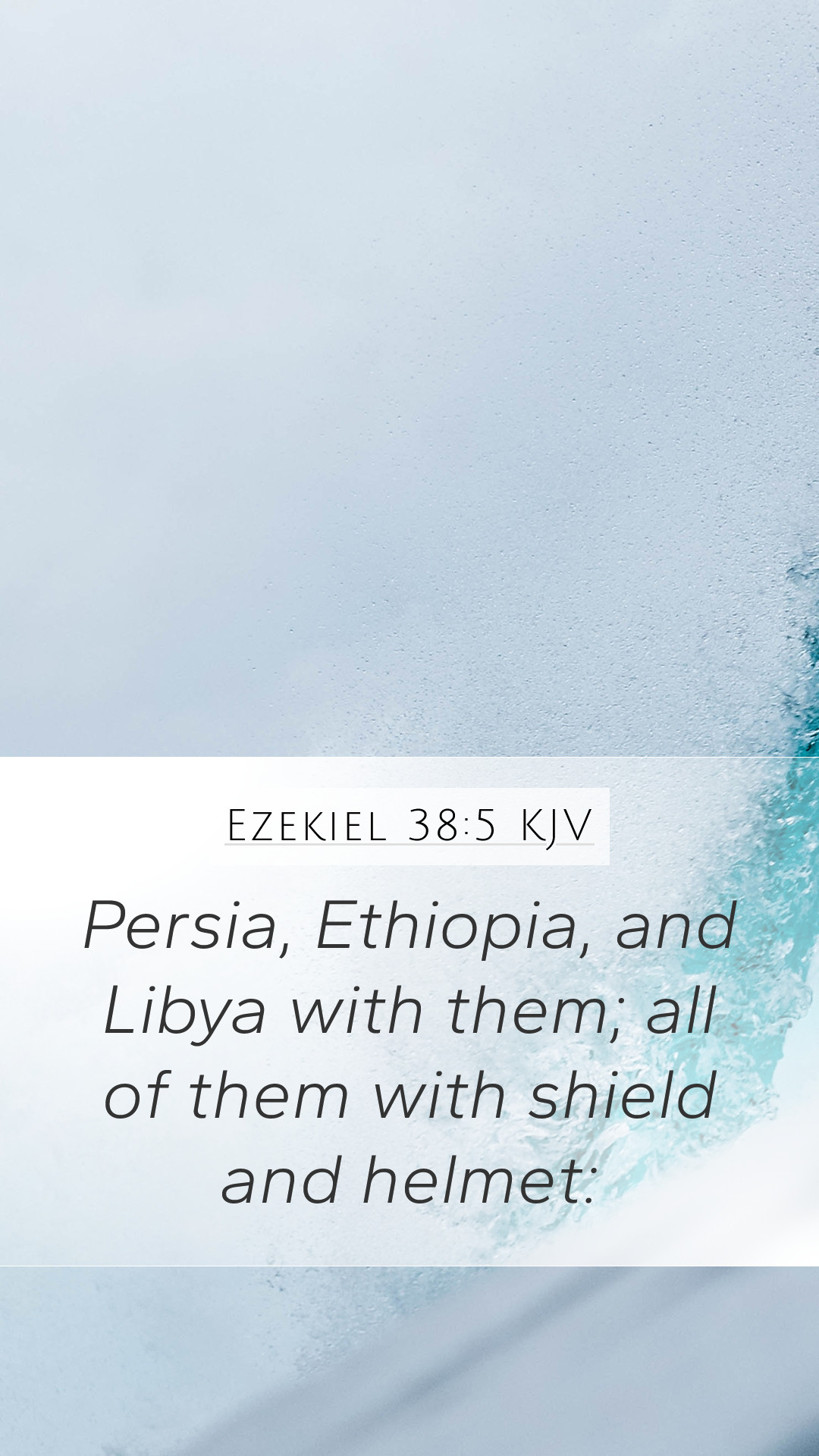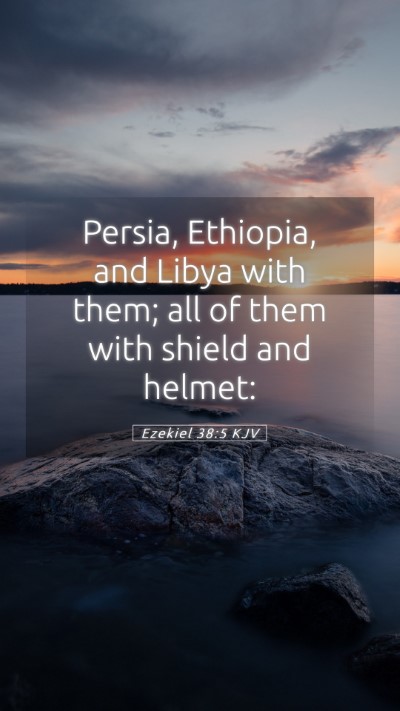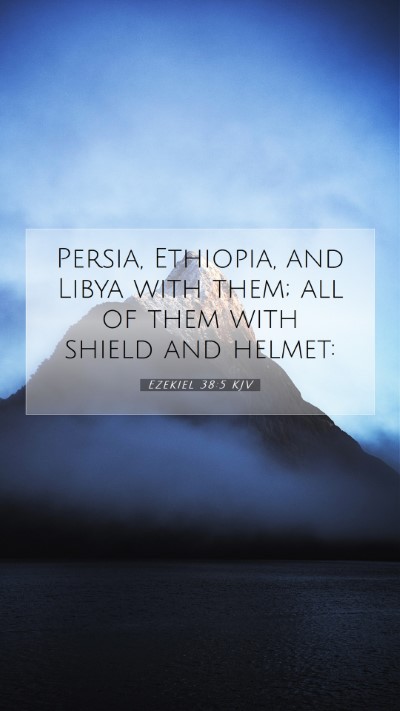Ezekiel 38:5 - Understanding the Context and Meaning
This verse states, "Persia, Cush, and Put will be with them, all with shields and helmets." (Ezekiel 38:5, NIV). To grasp its full significance, we delve into various aspects of Bible verse meanings, interpretations, and historical contexts, incorporating insights from public domain commentaries by renowned scholars such as Matthew Henry, Albert Barnes, and Adam Clarke.
Contextual Background
The prophetic book of Ezekiel outlines visions and messages that reveal God's judgment and restoration plans, particularly regarding Israel and the nations around them. Ezekiel 38 introduces the prophecy of Gog, a leader from the land of Magog, who represents a confederation of nations opposing Israel. This specific verse identifies key nations: Persia, Cush, and Put, which have historical and geographical significance.
Commentary Insights
-
Matthew Henry
Henry emphasizes the gathering of nations, highlighting how Persia (modern Iran), Cush (commonly associated with Ethiopia), and Put (linked to Libya) symbolize significant powers that oppose God's people. He suggests that this coalition of nations represents earthly opposition to divine will, illustrating the ongoing struggle between good and evil.
-
Albert Barnes
Barnes provides a historical perspective on these nations, explaining their roles throughout biblical history. Persia, known for its vast empire and significance during the time of the Babylonian captivity, is noted for its strategic involvement in future events concerning Israel. Cush and Put, as geographically aligned nations, reinforce the view of a comprehensive opposition against Israel.
-
Adam Clarke
Clarke interprets the alliance of these nations as indicative of the adversities Israel would face, symbolizing any array of forces united against God’s chosen people. He points out that the mention of shields and helmets suggests preparation for battle, reflecting the physical and spiritual warfare that surrounds God's plans.
Theological Significance
The inclusion of Persia, Cush, and Put can be seen as a prophetic indication of end-times scenarios where nations rise against the people of God.
Key Themes
- Opposition to God’s People: The imagery of warfare serves as a reminder that believers may face significant trials, yet God remains sovereign over history.
- Hope and Restoration: Despite the foreboding coalition against Israel, the surrounding chapters in Ezekiel speak of eventual restoration for God's people, providing assurance of God's ultimate plan.
- Historical Context: Scholars have traced these nations within the geopolitical landscape of Ezekiel's time, enhancing understanding of scripture through historical context.
Bible Study Insights
This verse can greatly benefit from scripture analysis in a Bible study context. Engaging with Bible study tools such as cross-references, historical maps, and linguistic studies can enhance comprehension of these passages. Suggested topics for discussion in bible study groups might include:
- How do these nations compare to modern adversaries of faith?
- What does this prophecy indicate regarding the nature of alliances in spiritual warfare?
- How can this understanding shape our worldview in contemporary times?
Related Bible Verses
To deepen understanding, consider exploring the following cross-references that discuss similar themes of opposition and divine sovereignty:
- Joel 3:2: A prophetic passage discussing the gathering of nations for judgment.
- Revelation 20:8: Reference to Gog and Magog in the context of end-time events.
- Isaiah 19:1-3: Highlights the conflict involving Egypt, alluding to Cush.
Conclusion
Understanding Ezekiel 38:5 goes beyond mere interpretation; it requires a multifaceted approach that embraces historical context, symbolic meaning, and theological implications. The insights gleaned from respected commentaries serve to enrich our Bible study insights and equip us to face challenges in faith. As believers, engaging deeply with scripture enhances our understanding of Scripture and aids in applying these important lessons to daily life.


